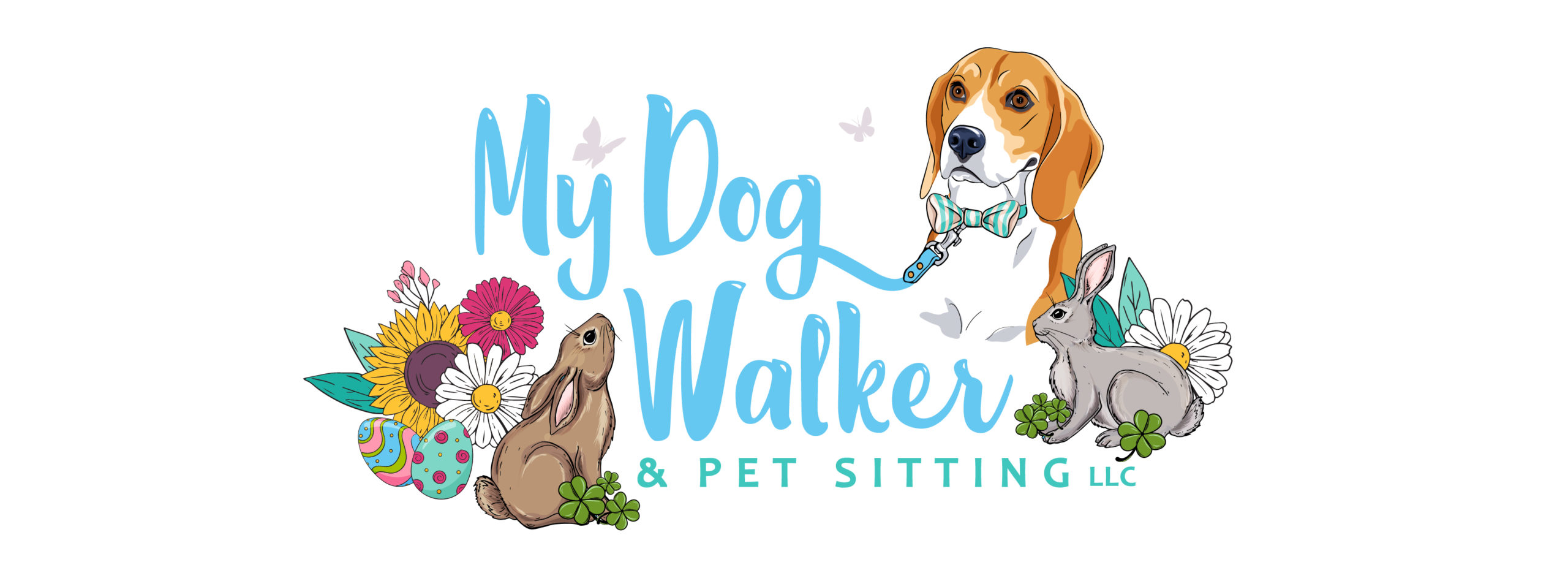
Taking An In-Depth Look Into Deaf Dogs And The Best Ways To Care For Them In Honor Of National Deaf Dog Awareness Week
National Deaf Dog Awareness Week is the perfect time to recognize and celebrate the unique needs of our hearing-impaired canine companions. Deaf dogs may require some special care and training, but with a bit of patience, love, and the right tools, they can live happy, fulfilling lives just like any other dog. Whether your dog was born deaf or lost their hearing over time, this guide will provide tips to help you care for and communicate with your deaf dog.
1. Understand The Needs Of Deaf Dogs
Deaf dogs rely more heavily on their other senses, particularly sight and touch. They’re just as loving and loyal as hearing dogs, but they experience the world differently. Being aware of their needs will help you make the necessary adjustments to keep them comfortable and happy.
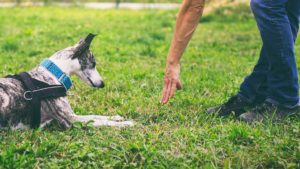
2. Use Hand Signals For Communication
Since deaf dogs cannot hear verbal commands, hand signals are the most effective way to communicate. You can use traditional sign language or create your own signals for commands like “sit,” “stay,” and “come.” Consistency is key, so make sure everyone in the household uses the same signals. With positive reinforcement, your dog will quickly learn to respond to visual cues.
3. Create A Safe and Secure Environment
Deaf dogs can easily be startled if they don’t see you coming, which might cause them stress. To avoid this, gently tap them to get their attention before approaching. If you’re waking them up from a nap, softly touch them to prevent any sudden surprise.
It’s also essential to keep your deaf dog safe from potential dangers, especially outdoors. Use a leash during walks, as they won’t be able to hear traffic or other hazards. A fenced yard is ideal for playtime, but if you let your dog off-leash in a safe area, ensure they’re wearing a vibrating collar, which you can use to get their attention.
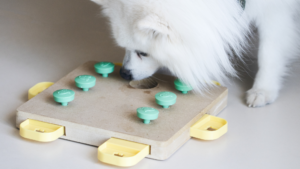
4. Provide Mental and Physical Stimulation
Deaf dogs enjoy mental and physical enrichment just as much as any other dog. Since they can’t rely on sound-based games like fetch with a whistle, you can engage their other senses with stimulating toys and activities. Try using scent-based games or visual cues, like flashing a light to get their attention during playtime. Interactive puzzle toys can also keep them mentally engaged and prevent boredom.
5. Socialize Your Dog With Other Pets and People
It’s important to socialize your deaf dog early on to ensure they feel comfortable around other dogs, animals, and people. Deaf dogs can still communicate through body language, so socialization will help them learn appropriate behaviors and reduce anxiety.
Make sure others, especially children, understand how to interact with your deaf dog. Teach them to approach from the front, so your dog can see them, and remind them not to startle the dog with sudden movements.
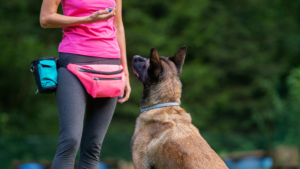
6. Train With Positive Reinforcement
Just like hearing dogs, deaf dogs respond well to positive reinforcement. Rewarding good behavior with treats, affection, or visual cues (like a thumbs-up) will help reinforce commands and build a trusting relationship. Be patient during training, and celebrate small victories along the way.
For more information regarding positive reinforcement training for dogs, click here.
7. Use a Vibrating Collar For Attention
Vibrating collars are an excellent tool to get your deaf dog’s attention without startling them. These collars don’t shock or hurt your dog; instead, they gently vibrate, signaling to your dog to look at you. Once they turn to face you, you can use hand signals to give commands or directions.
8. Stay Alert For Any Health Changes
Since deaf dogs rely more on their sight, make sure to monitor their vision as they age. Additionally, if your dog wasn’t born deaf but lost their hearing due to age or illness, be mindful of any changes in their behavior or health. Regular vet checkups are important to ensure their overall well-being.
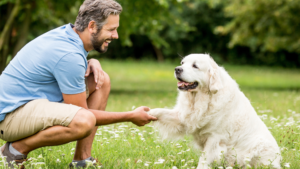
Celebrating Deaf Dogs
Deaf dogs are just as capable of learning, loving, and living life to the fullest as hearing dogs. With the right training, patience, and care, you can create a safe, enriching, and happy environment for your furry friend. This National Deaf Dog Awareness Week, take the time to celebrate the joy that deaf dogs bring to our lives and spread awareness about the special care they need.
By following these tips, you can ensure that your deaf dog feels safe, loved, and understood. After all, love knows no bounds, and your connection with your dog will only grow stronger with each passing day.
Looking For A Professional Pet Sitter For Your Deaf Dog?
If you or someone you know is looking for a pet sitter or dog walker, then look no further than My Dog Walker & Pet Sitting. We are fully insured & bonded and have over 10 years of experience working with animals. Click here to check out our wide variety of pet sitting services including in-home pet sitting and routine dog walking.
We currently service the Medford, Medford Lakes, Shamong, and Tabernacle, NJ areas. To become a client, click here or give us a call at 856-217-2781. Be sure to check us out on Facebook and Instagram too! We post new content regularly, so be sure to follow us so you don’t miss out on adorable pictures of our pets.
